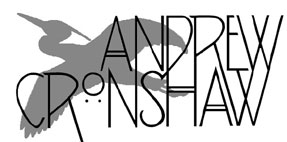
- Andrew Cronshaw website -
- Andrew Cronshaw MySpace -
- Cloud Valley Music website -
- Andrew Cronshaw website -
- Andrew Cronshaw MySpace -
- Back to Reviews Introduction page -
Written in
fRoots
issue 223/224, 2002
MARTTI POKELA
Tuulikumpu
Kansanmusiikki-instituutti KICD 71 (2001)
It’s difficult to over-state Martti Pokela’s importance in current Finnish roots
music, as not only the country’s best known kantele player but as researcher,
composer, professor, quirky, humorous innovator, and motivator for the setting
up of Sibelius Academy’s Folk Music Department.
Born in Haapavesi 1924, during the 1950s and
1960s he became a nationally famous performer of folk music, often in company
with his wife Marjatta. Today he’s still creating music and moving among the new
world of Finnish music he was key to creating, but has ceased performing in
public. In 2001 he was given a high national award, and there appeared this CD,
the first in a series of collections of his recorded work, gathered by Hannu
Saha, kantele player, director of the Folk Music Institute and one of the prime
bearers of Pokela’s legacy. Tuulikumpu is volume one, covering the
recordings made in those first two decades.
In the first nine tracks are recordings he made
playing historic kanteles in the collection of the Finnish National Museum.
What’s particularly interesting about all these old kanteles, including a
20-string owned by Elias Lönnrot, the writer of the Kalevala, is their deep,
thick-string, bell-like resonance compared to modern kanteles, even allowing for
the fact that some perhaps can no longer take high tension. A Vepsian 7-string,
in particular, sounds like the recording is played back at half speed, with low,
chiming harmonics. The occasional intruding sound of a Helsinki tram rumbling
past outside serves to accentuate the passage of time and change since they were
made and last played.
The second section comprises folk dance tunes -
march, waltz and polkka - played on bigger, box-type diatonic kanteles with 32
or 36 strings. Then follow two series of pieces made as the recorded soundtracks
for two ballets, involving various kanteles, birch-bark shepherd’s whistle and
interjected voices, giggling, scratchy or, in the case of Pylylypyppy, in
the nature of Finnish mouth-music.
Pokela’s work, and indeed the nature of the
kantele tradition itself except perhaps when playing dance music, pays great
attention to the absolute sound coming from the instrument. In these ballet
scores the sound engineer’s was an important role, and even back then there was
enhancement of real sounds with subtle effects which still don’t sound gauche
today.
Eyes glinting elfin amusement and the imminence
of the unexpected, cultural guerrilla Martti Pokela has forged a path between
the old ways of making and hearing music and the avant-gardism, minimalism and
modern dance of the art-gallery world, and it’s a widening lane down which he
and today’s creators, Finnish and sometimes from overseas too, continue to skip.
© 2001
Andrew Cronshaw
You're welcome to quote from reviews on this site, but please credit the writer
and fRoots.
Links:
fRoots - The feature and
review-packed UK-based monthly world roots music magazine in which these reviews
were published, and by whose permission they're reproduced here.
Kansanmusiikki-instituutti (Finland's national Folk Music Institute).
It's not practical to give, and keep up to date,
current contact details and sales sources for all the artists and labels in
these reviews, but try Googling for them, and where possible buy direct from the
artists.
Helsinki's Digelius Music
record shop is a great source of Finnish roots and other albums.
CDRoots.com in the USA, run by
Cliff Furnald, is a reliable and independent online retail source, with reviews,
of many of the CDs in these reviews; it's connected to his excellent online magazine
Rootsworld.com
For more reviews click on the regions below
NORDIC
BALTIC
IBERIA (& islands)
CENTRAL & EASTERN EUROPE, & CAUCASUS
OTHER EUROPEAN AMERICAS OTHER, AND WORLD IN GENERAL
- Back to Reviews Introduction page -